Crafting a Comprehensive B2B SEO Guide
A successful B2B SEO strategy relies heavily on implementing a well-rounded SEO approach to enhance online visibility and attract valuable leads.
Here is a detailed guide to creating an impactful B2B SEO guide:
Click Here – Free 30-Minute Strategy Session
Be quick! FREE spots are almost gone for this Month
Free Quote
- Begin by conducting extensive research on keywords to identify relevant search terms used by your target audience.
- Focus on industry-specific keywords that align with your products or services.
- Utilise keyword research tools and analyse competitor keywords to gain valuable insights and discover opportunities.
- Enhance your website’s search engine rankings by optimising its on-page elements.
- Create compelling meta titles, meta descriptions, and header tags that incorporate targeted keywords.
- Ensure your content is informative, well-structured and keyword rich.
Understanding B2B SEO: A Comprehensive Overview
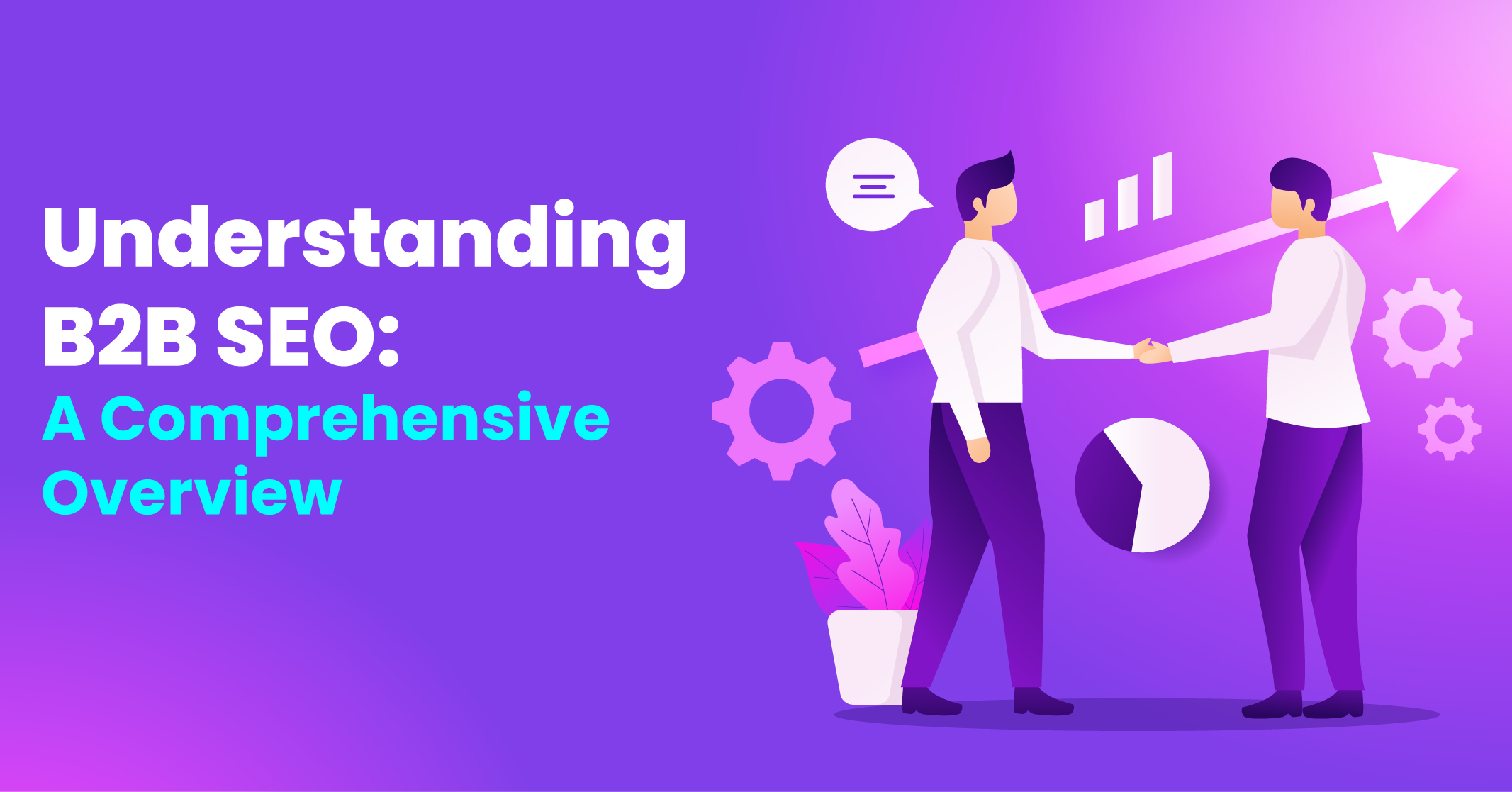
B2B SEO is a strategic approach focused that involves improving your website’s organic search engine traffic. The goal of B2B SEO is to position a business’s website in front of individuals actively seeking the services or products offered by that business.
While B2B involves businesses purchasing from other businesses, as opposed to B2C where consumers buy from businesses, the fundamentals of SEO remain consistent.
These fundamentals encompass:
- On-page SEO
- Off-page SEO
- Technical SEO
- Content
However, B2B SEO statistics present unique challenges, primarily due to the target audience being different from those purchased for personal use.
When targeting individuals making business-related purchases, their buying behaviour differs from that of individual consumers.
To navigate these distinctions and develop a successful B2B SEO strategy, let’s explore the following step-by-step approach.
B2B VS B2C
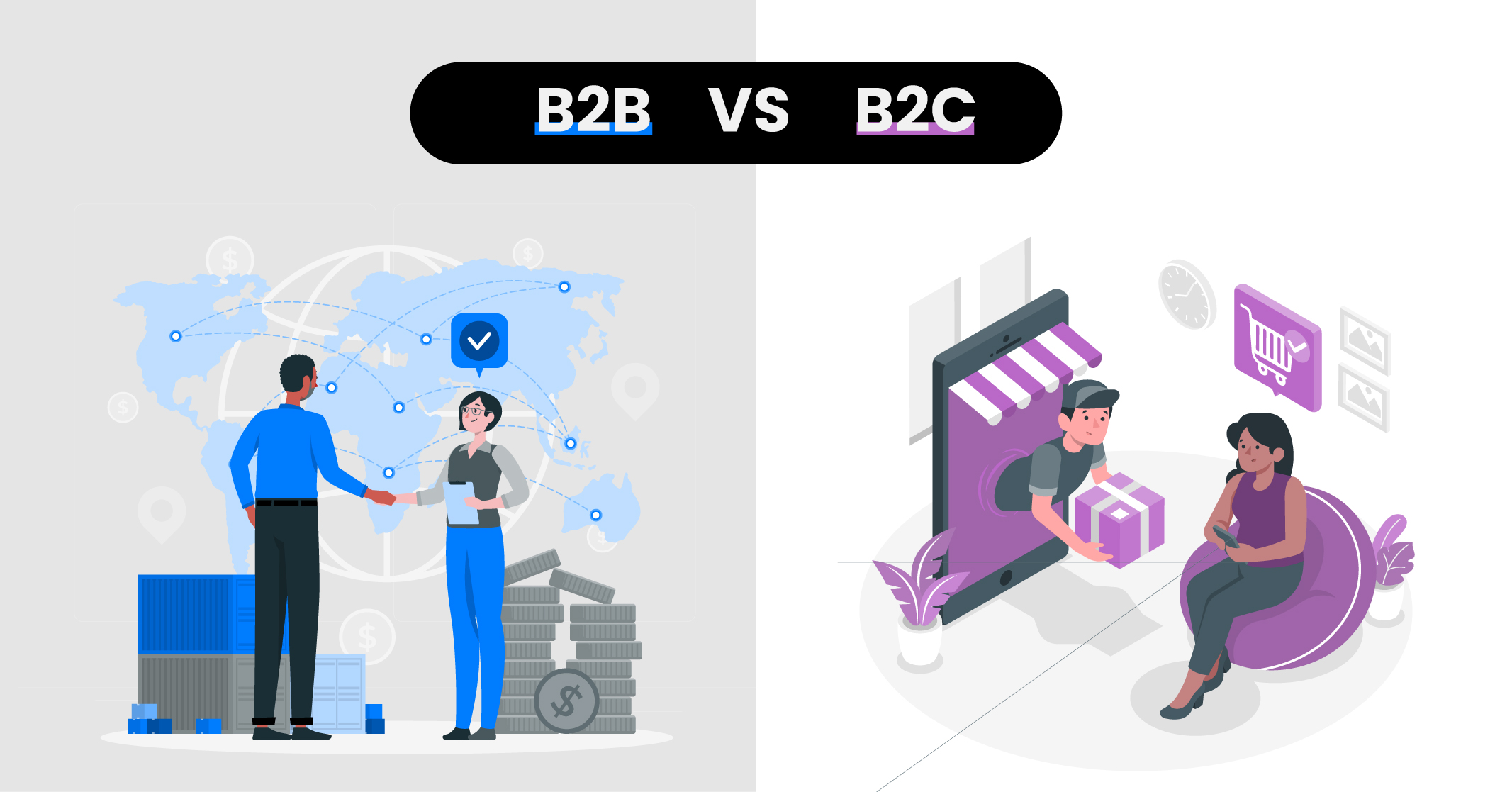
B2B SEO and B2C SEO are two distinct approaches to search engine optimisation, tailored for different target audiences and business models. Here are the key differences between the two:
- Target Audience: B2B SEO focuses on businesses purchasing products or services from other businesses, while B2C SEO targets individual consumers purchasing products or services for personal use.
- Buying Behaviour: B2B buyers often go through a more complex and lengthy decision-making process, involving multiple stakeholders, extensive research, and evaluation of business needs. B2C buyers typically have a shorter decision-making process, driven by personal preferences and immediate needs.
- Keyword Intent: B2B SEO keywords often revolve around industry-specific terms, professional jargon and solution-oriented queries. B2C SEO keywords are more consumer-focused, emphasising product features, benefits and popular search terms related to personal interests.
- Content Approach: B2B SEO content tends to be informative, educational, and focused on addressing business challenges, industry trends, and providing in-depth solutions. B2C SEO content is often more persuasive, highlighting product features, user experiences, and appealing to emotions.
- Sales Cycle: B2B sales cycles are typically longer, involving relationship-building, multiple touchpoints, and nurturing leads through various stages of the sales funnel. B2C sales cycles are often shorter, with a focus on immediate conversion and purchase.
- Channel Emphasis: B2B SEO strategies often prioritise channels such as search engines, industry-specific directories, and professional networks. B2C SEO strategies may emphasise broader online channels, including social media platforms, influencer marketing and targeted advertising.
- Conversion Metrics: B2B SEO measures success based on lead generation, conversions, and the impact on overall business growth. B2C SEO places greater emphasis on immediate sales, transactional metrics, and customer acquisition.
While there are differences, both B2C and B2B SEO strategies aim to increase online visibility, attract relevant traffic, and drive conversions. Understanding the distinctions between the two is crucial in tailoring SEO efforts to effectively reach the target audience and achieve business goals.
Learn More: Top 10 SEO Strategies in 2023
Understanding the Sales Funnels

B2B SEO strategies are considerably more intricate than that of B2C. It involves a longer duration and often requires engagement from multiple decision-makers.
To illustrate this, compare the ease of buying a new pair of shoes with the process of a large company seeking a new CRM system. The complexity of the B2B sales funnel necessitates a thorough understanding of the target audience, surpassing what B2C marketers typically require. B2B marketers must seize every opportunity to generate targeted traffic at each stage of the funnel.
B2B SEO Tips:
- B2B companies typically target niche audiences, resulting in lower search volumes for the keywords they prioritise. For instance, consider the search volume for “best CRM software” versus “best basketball shoes.” The disparity is substantial, with approximately 36,000 fewer monthly searches for the former
- Focus on specific search terms that allow precise targeting of the intended audience and facilitate progression through the sales funnel
- It is essential to attract the right kind of traffic that aligns with the products or services being offered.
- Get a deep understanding of the audience and effectively showcase how the product or service solves their problems.
- Demonstrating expertise through thought leadership content is a highly effective approach that can be achieved through blogging, guest posting and podcasts.
7-Step B2B SEO Strategy
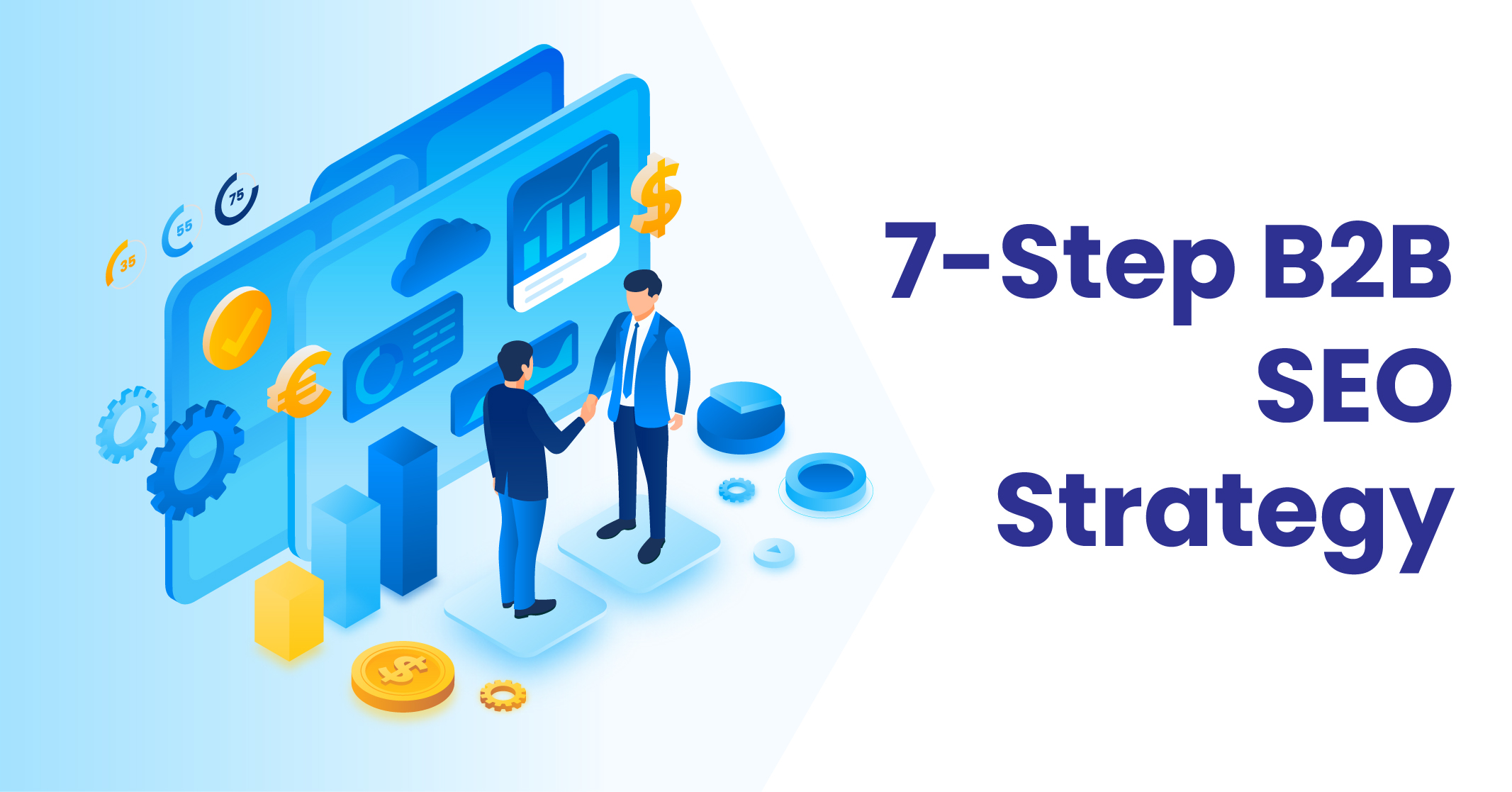
The 7-Step Strategy for B2B SEO is a comprehensive approach to optimise a B2B website for search engines and enhance online visibility to attract valuable leads.
Here are the seven key steps involved:
- Identify Target Audience and Objectives: Begin by precisely defining your target audience within the B2B space. Gain a deep understanding of their needs, preferences and challenges. Establish clear objectives for your SEO strategy, such as boosting organic traffic, improving keyword rankings or generating qualified leads.
- Conduct Extensive Keyword Research: Undertake thorough keyword research to discover relevant search terms that align with the intent of your target audience. Focus on industry-specific keywords, long-tail keywords and niche terms.
- Optimise On-Page Elements: Optimise the on-page elements of your website to enhance search engine rankings. Craft captivating meta titles, meta descriptions, and header tags that incorporate target keywords.
- Create High-Quality Content: Develop valuable, informative and engaging content that addresses the needs and pain points of your target audience. Produce blog posts, whitepapers, case studies and industry reports that establish your brand as a thought leader and offer solutions to their challenges. Naturally, integrate target keywords into your content.
- Cultivate High-Quality Backlinks: Earn high-quality backlinks from authoritative websites to enhance your website’s credibility and search engine rankings. Seek opportunities for guest blogging, actively participate in industry forums and collaborate with influencers or partners.
- Enhance User Experience: Prioritise improving the user experience of your website. Ensure fast loading times, mobile responsiveness and easy navigation. Optimise user engagement by incorporating interactive elements, such as videos, infographics and interactive tools.
- Analyse, Track and Adapt: Regularly monitor and analyse the performance of your SEO initiatives using analytics tools. Track key metrics like organic traffic, keyword rankings, conversion rates and lead generation. Utilise the data to gain insights, identify areas for improvement and make informed decisions to refine your strategy over time.
By following this 7-step B2B SEO strategy, you can enhance the visibility of your website, attract valuable leads and achieve sustainable success in the B2B marketplace.
Why B2B SEO Strategy is Essential for your Business Growth?
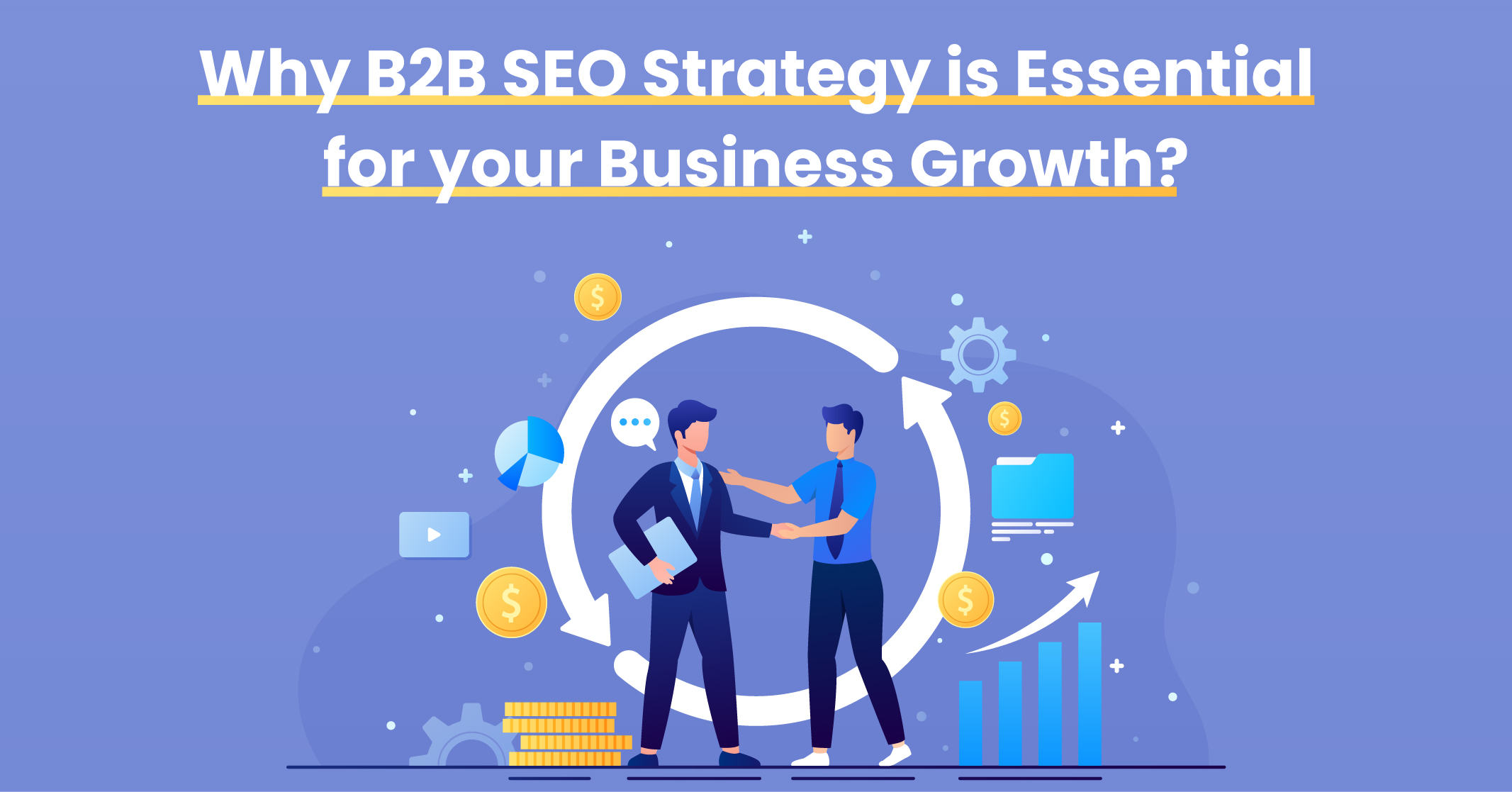
By implementing SEO strategies in 2023, you enhance your business’s online visibility. Optimising your website and content for search engines enables you to achieve higher rankings in search results. This, in turn, facilitates easier discovery by potential customers, leading to increased organic traffic and exposure within your target audience.
- Targeted Traffic: B2B SEO allows you to attract precisely targeted traffic to your website. By focusing on industry-specific keywords and tailoring your content accordingly, you can effectively reach the audience actively searching for the products or services you offer.
- Cost-Effective Marketing: B2B SEO presents a cost-effective marketing strategy when compared to other paid advertising methods. Although it requires time and effort, the long-term benefits of organic search traffic can be significant.
- Established Authority and Credibility: A well-executed B2B SEO strategy aids in establishing your brand’s authority and credibility within your industry. Consistently generating high-quality content, optimising your website and earning backlinks from reputable sources position you as a trusted and knowledgeable resource.
- Sustained Long-Term Results: B2B SEO is a long-term strategy that delivers sustainable outcomes. Unlike temporary advertising campaigns, SEO efforts continue to generate organic traffic and lead over time.
- Competitive Edge: In the competitive B2B landscape, a well-executed SEO strategy provides a distinct competitive advantage. By surpassing your competitors in search results, you increase your visibility and attract potential customers before they even consider your rivals.
Want to implement the best SEO strategies? Traffic Radius can help you establish a robust online presence so that you can effectively reach your target audience and yield long-term benefits.
Learn More: How to Increase Organic Traffic?
Conclusion
In summary, implementing effective SEO strategies specifically tailored for the B2B marketplace is essential for businesses to thrive. By prioritising the optimisation of their online presence, companies can enhance their visibility, attract relevant traffic and generate valuable leads.
By adopting a comprehensive B2B SEO approach, businesses can achieve sustainable growth and excel in the competitive B2B industry. It encompasses of:

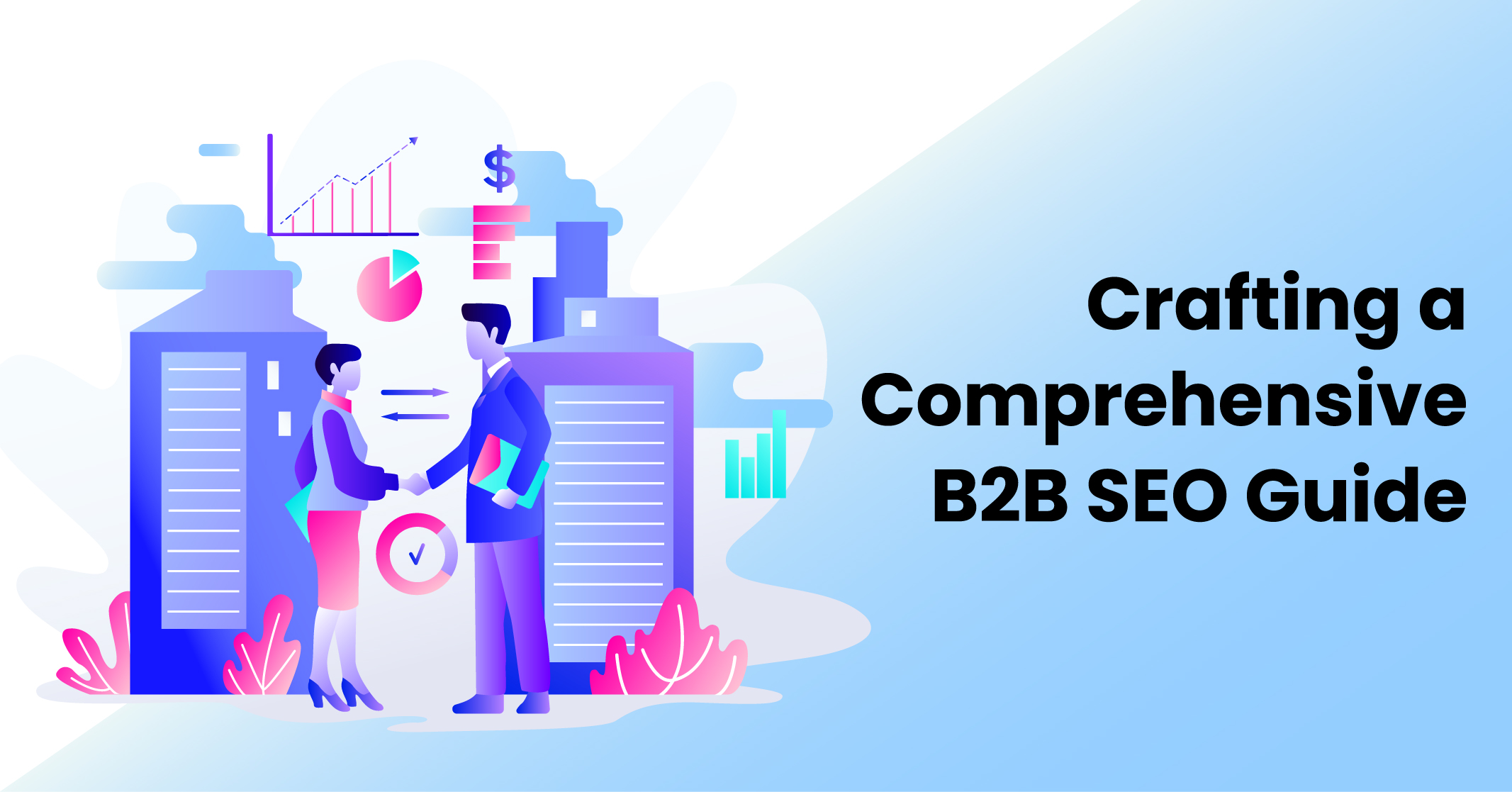







LEAVE A REPLY